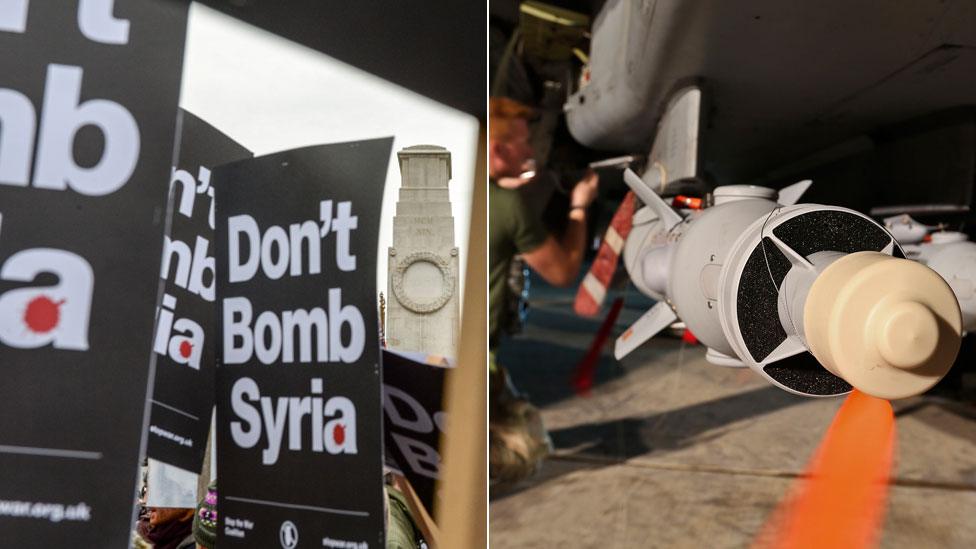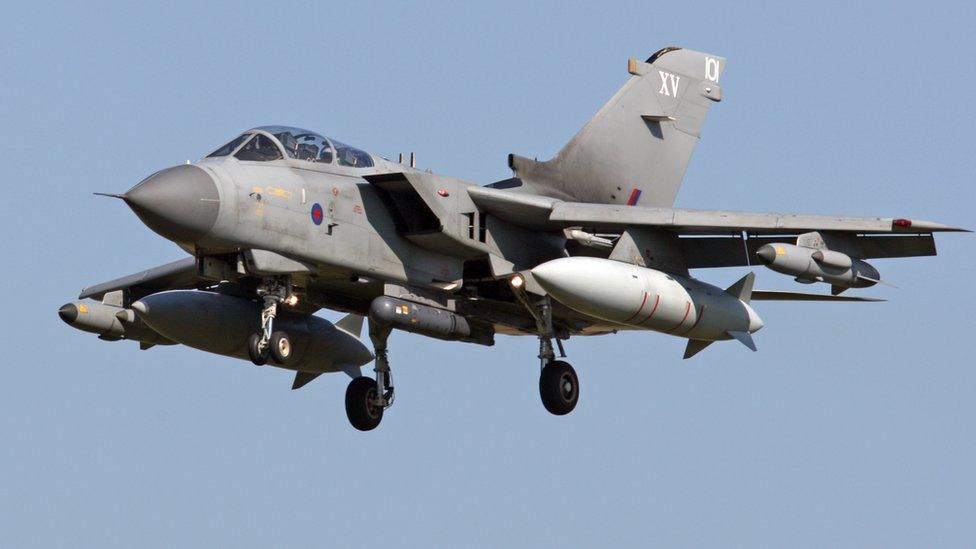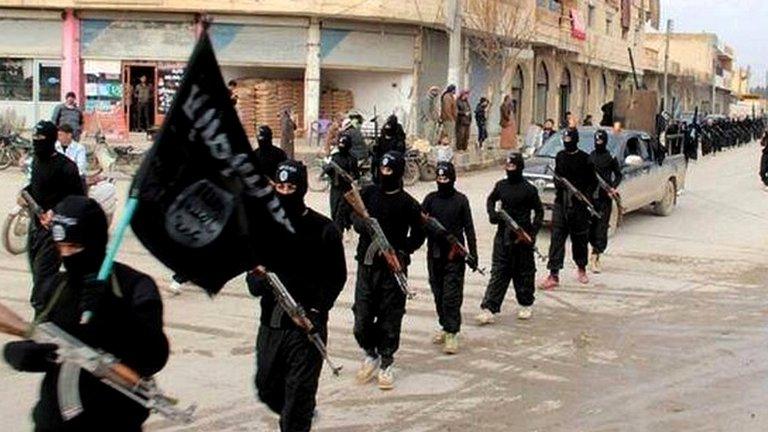Syria air strikes: For and against UK action
- Published

As UK MPs are to vote on whether British armed forces should attack so-called Islamic State (IS) targets in Syria, commentators consider why they are - respectively - for and against air strikes.

'We need to end IS's control of its territory'
Alan Mendoza, executive director of think tank the Henry Jackson Society

"The UK is already engaged in air strikes against IS in neighbouring Iraq. But some of the major IS command and control points are located within Syria. For us to take an arbitrary approach when IS itself does not take account of this border when pursuing its nefarious activities means that our campaign against it cannot be as effective as it would be with full freedom of manoeuvre.
Strategically, we need to end IS's control of its territory in both Iraq and Syria in order to drive it back into the shadows from where it emerged. We cannot do that by only air striking in Iraq.
Equally, we have important allies who are engaged in Syria against IS. We face the same threat from IS as they do - as seen with tragic such consequences in Paris - and for us to stand aside while they carry the full burden of responsibility in fighting it would be morally shameful.
Operationally, UK strikes are likely to be limited in impact, as we would simply be one component of a larger strike force. However, collectively, the strike force will have the capability to degrade and destroy IS units and infrastructure and weaken its ability to control its territory. As this is a prerequisite for beating IS, we will therefore be making an important contribution."


'Actions have consequences'
Peter Ford, former UK ambassador to Syria

"The added value of UK air strikes in Syria will be piddling - IS leaders have mostly moved to Mosul or are hiding among the civilian population - and because British people will die and be maimed as a direct result.
Labour MPs planning to vote for bombing should pause to consider the effect on their careers of exposing themselves to recrimination from the families of the soon-to-be bereaved after we see carnage on our streets.
The government are being economical with the truth about already being targeted by IS: they don't say the seven thwarted attacks were actually "by" IS but "linked to" or "inspired by". Weasel words.
If the government was sure of its legal case, why is it unwilling to seek an unambiguous UN Security Council resolution? Because it knows it would not pass.
Bombing in Syria - where a complex multi-sided conflict is going on - is different from bombing in Iraq, where we are supporting an elected government. Also because actions have consequences and the inevitable blowback on our streets will be severe."

- Published26 November 2015
- Published1 December 2015

- Published3 December 2015
